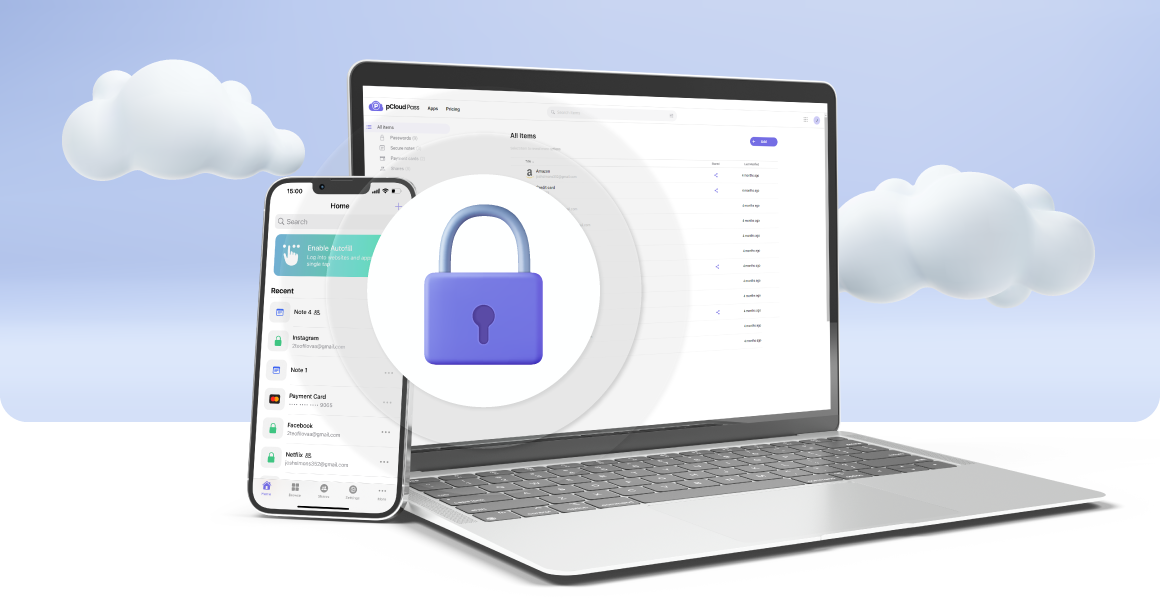The Future of Passwords: Navigating Beyond Traditional Authentication

It’s World Password Day and we’re very excited to talk about the future of passwords!
So far, we’ve covered:
What a strong password looks like
How to check if your passwords have been hacked
Today, let’s explore how passwords are evolving.
Biometric Authentication
Biometric authentication uses unique biological traits to verify identity. Think about fingerprints, facial recognition, or iris scans. It’s the more secure and user-friendly alternative to traditional passwords. That’s because biometric data is inherently more difficult to replicate or steal than passwords. This offers a higher level of security and convenience for the users. As biometric technology becomes more widespread and affordable, it’s poised to play a significant role in the future of authentication.
Multi-Factor Authentication (MFA)
Multi-factor authentication (MFA) combines two or more independent credentials to verify a user’s identity. This way it adds an extra layer of security. Common forms of MFA include SMS codes, hardware tokens, and biometric factors. MFA mitigates the risk of unauthorised access, by requiring attackers to possess multiple factors. As organisations prioritise security and compliance, the adoption of MFA is expected to increase. Passwords will become just one component of a more robust authentication framework.
Passwordless Authentication
Passwordless authentication methods, such as token-based authentication, push notifications, and single sign-on (SSO) solutions, are gaining momentum. Users no longer have to remember complex passwords. Moreover, they reduce the risk of password-related security incidents. By leveraging technologies like biometrics, hardware tokens, and cryptographic keys, passwordless authentication offers a better authentication experience.
Behavioural Biometrics
Behavioural biometrics analyse unique patterns in user behaviour. Think of typing rhythm, mouse movements, and device usage patterns which can authenticate users without the need for explicit input. By continuously monitoring and analysing user behaviour, behavioural biometrics can detect anomalies. Once those ring the alarm of unauthorised access attempts, they prompt additional authentication measures. Behavioural biometrics are expected to gain prominence, as a seamless, complementary authentication method.
Continuous Authentication
Continuous authentication aims to continuously verify a user’s identity throughout their session. It is based on various factors, such as behaviour, location, and device characteristics. By dynamically adapting authentication requirements based on the perceived risk level, continuous authentication provides a more contextual approach to security.
The future of passwords is characterised by innovation, diversity, and adaptability. However, having a password manager that you get along with is crucial. A good password manager helps you create, store, and organise strong passwords with ease.
pCloud Pass updates
Our password manager pCloud Pass, just got a few significant updates!
With the new ‘Autosave’ function for the browser extension, pCloud Pass saves your passwords automatically to your account. All you need to do is to successfully log in to the desired website. You can edit or undo the password details directly from the success confirmation. Or you can mark the current website as ‘Never save passwords for’.
What else? Well, we have an improved look and feel. The two-step login processes is smoother with a dropdown marker for the selected credentials.
And last but not least, you can make use of the new search functionality within the Extension. In case you can’t find the desired password in the ‘Autofill’ suggestions.
Give yourself some ease of mind. Your passwords are safe with us. Why not try it out for free today!